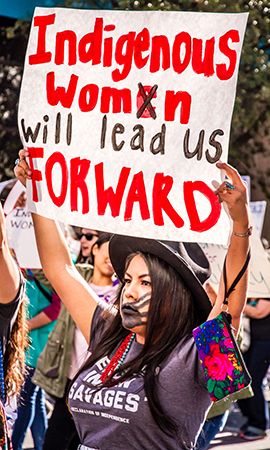Gender and Politics
 The study of Gender and Diversity considers the role of gender in politics; the intersectionality of gender and other identities, such as race, ethnicity, and sexual orientation; political representation and gendered political behaviour; and the dynamic relationship between identity and perceived difference in political life. As a field that has been profoundly influenced by feminist scholarship, Gender and Diversity includes an ongoing conversation about which research methods are appropriate for the study of actors located at various locations of political hierarchies – and indeed raising critical questions about those hierarchies.
The study of Gender and Diversity considers the role of gender in politics; the intersectionality of gender and other identities, such as race, ethnicity, and sexual orientation; political representation and gendered political behaviour; and the dynamic relationship between identity and perceived difference in political life. As a field that has been profoundly influenced by feminist scholarship, Gender and Diversity includes an ongoing conversation about which research methods are appropriate for the study of actors located at various locations of political hierarchies – and indeed raising critical questions about those hierarchies.
In their second year of the program, students in this concentration earn 0.5 credit in:
PSCI 2500 [0.5 credit]: Gender and Politics
Introduction to gender and politics of diversity, including how feminist activism and organizing finds expression in the political process and structures of representation such as political parties, legislatures and the state.
In their third and fourth year of their program, students take 1.5 credits in Gender and Politics core courses, such as:
PSCI 3303 – Feminist Political Theory
PSCI 3502 – Gender and Politics: Global South
PSCI 4403 – Reproductive Rights Policy in North America
PSCI 4501 – Politics of Identity in Europe and the Russian Area
PSCI 4506 – Women and Politics in North America
PSCI 4605 – Gender in International Relations
And an additional 1.5 credits in Gender and Politics core and related courses, such as:
PSCI 3006 – Social Power in Canadian Politics
PSCI 3108 – Politics of Popular Culture
PSCI 3109 – The Politics of Law and Morality
PSCI 3307 – Politics of Human Rights
For the full list of course options in Gender and Politics, and the specific degree requirements for your program, consult the Undergraduate Calendar. Please note that not all courses in this list are offered each year.
